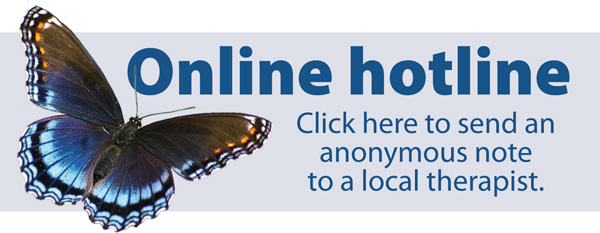Dear Tom,
I’m a new mom and I’ve been struggling with postpartum depression lately. I’m being treated by my doctor but my husband’s parents think it’s all nonsense and that I should just “get over it.” It’s causing a lot of resentment in the family because I’d like nothing more than to “get over it” but am having a hard time right now. How can I make them understand that this is a very real issue and that I’m not “faking it.” The way they’re treating me right now seems to making the depression worse.
Dear Mom,
I’m so sorry you’ve been struggling with postpartum depression, but I’m glad to hear that you’re getting treatment through your doctor. What you are highlighting is really an inter-personal issue between you and your in-laws. Before we get to that, here are some facts about postpartum depression that might help people like your in-laws see how real and serious postpartum depression truly is.
First and foremost, postpartum depression is a real diagnosable illness listed in the ICD-10 Disease Classification Manual that is used by physicians throughout the United States. It can affect anyone. Famous actresses such as Gwyneth Paltrow and Brook Shields have publicly discussed their challenges with postpartum depression.
The symptoms of postpartum depression include symptoms similar to traditional depression such as low or sad mood, loss of interest in fun activities, changes in eating, sleeping and energy, and feelings of hopelessness, guilt or shame. But there are other symptoms particular to postpartum depression, such as—
- Trouble sleeping when your baby sleeps (more than the lack of sleep new moms usually get).
- Feeling numb or disconnected from your baby.
- Feeling inadequate or guilty about not being a good mom, or ashamed that you cannot care for your baby as well as you would like.
According to a 2008 Center for Disease Control (CDC) survey, 11% to 20% of women in 17 different states reported having frequent postpartum depressive symptoms. Postpartum depression can last up to a year after birth of the child.
Besides seeing your doctor, other things which help relieve postpartum depression are:
• Therapy
• Alternative medicines, herbal remedies and dietary supplements
• Support groups
• Exercise
• Stress Management
• Sleep
• Spending time with others
• Making time for yourself
• Medication
Mom, it sounds like you’re savvy and have been doing some things to help yourself already. You should be proud of that. So my last comment is about support from your husband. You say the issue is with your in-laws. Is your husband being supportive of you? If not, this is worth a serious one-on-one conversation or a request that he attend a session with you and your physician or a therapist. I hope you can make that happen. He needs to step in and help.
In the meantime, do all you can to take care of yourself and know that a mom who takes care of herself IS being a good mom!
Tom
Tom Petrizzo serves as CEO of Ozark Guidance and has degrees in social work and law. You can reach Ozark Guidance at 479-750-2020. Tom has spent the last 20 years managing non-profit centers in Texas, Kansas, Colorado and Arkansas. He has also served as adjunct faculty at the social work graduate program at three large universities. He’s married to Teri Classick, a licensed clinical social worker, and they have two daughters. When he’s not at work, Tom likes to jog, bike ride, read and he even belted out the National Anthem lately at a Northwest Arkansas Naturals Game!
Tom would be happy to answer your questions and read what’s on your mind. Click the butterfly icon below to fill out an anonymous submission form with your question or concern. The form contains NO identifying information and is designed to give local women an online place to share concerns with a person qualified to offer feedback. Tom will be back each month to answer another woman’s question.
Disclaimer: This RESPONSE does not provide medical advice It is intended for informational purposes only. It is not a substitute for professional medical advice, diagnosis or treatment. Never ignore professional medical advice in seeking treatment because of something you have read on nwaMotherlode or Ozark Guidance websites.






